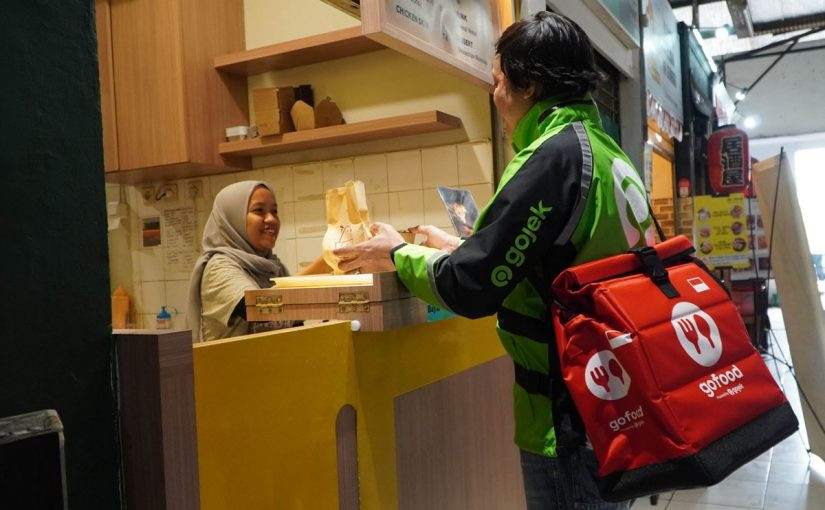Popular Reads
Top Results
Can't find what you're looking for?
View all search resultsPopular Reads
Top Results
Can't find what you're looking for?
View all search resultsGreater Jakarta under the threat of diabetes epidemic
Consumption of fast foods characterized by refined carbohydrates products, sugars and unhealthy fats raises blood sugar levels, and additional pressure on insulin function is observed. Eventually, this pattern leads to insulin resistance, a condition associated with type 2 diabetes, weight gain and obesity, among other health complications.
Change text size
Gift Premium Articles
to Anyone
D
iabetes is increasing rapidly in Indonesia due to changes in life patterns, increased urbanization and social inequality. This rapid increase in the number of diabetes patients can be attributed to the increased consumption of fast foods late at night, which enhances the risk of diabetes-related complications in people of all ages.
The dietary factors leading to diabetes risk in a metropolis such as Greater Jakarta are representative of those found in most urban areas. The ordering of fast food in the region, which is Indonesia’s hottest food city, increased from 2.47 million orders between 2021 and 2022 to 2.9 million between 2022 and 2023.
The urban environment is characterized by low physical activity levels and easy access to foods high in energy density, which worsens the diabetes epidemic. Greater Jakarta’s trends portray the effects of urbanization and globalization on the citizens’ health, which requires focused programs on diet and lifestyle in the region.
The Indonesian population’s genetic predisposition, increased urbanization and changes in lifestyle and diet are some of the determinant causes for the upsurge in diabetes. Individual susceptibility is afforded by genetic predispositions.
However, it is urbanization that boosts the rate at which people shift to processed, high-sugar diets. Metabolic health declines with sedentary behavior compared with active living forms and increasingly sedentary work environments.
Consuming fast food at night, especially in the late hours, increases glucose vulnerability, hence the risk of diabetes. Collectively, these elements contribute to diabetes prevalence, and there is a need to address modifiable risk factors in the dynamic Indonesian society, especially in Greater Jakarta.
Indonesian food is predominantly a carbohydrate and fiber diet, vegetables, fruits, grains and lean meat, a diet low on calories and nutrients. Some popular foods include rice, tofu, tempeh, spinach, kale, parsley and other leafy greens, which are suitable for balancing nutrition and maintaining steady energy and metabolism.
However, changes in diets over the past few decades, from traditional to Westernized diets, have increased the consumption of processed foods, sugars, refined carbohydrates and saturated fats. Large quantities of fast foods and soft drinks containing high amounts of calories and sugar are easily available and consumed frequently, particularly by people residing in urban areas. This transition from nutrient-dense to energy-dense, low-nutrient foods increases diabetic risk substantially.
Late-night eating, especially high-calorie fast food, disrupts blood glucose regulation and reduces insulin sensitivity, impacting metabolic health. Late-night eating does not coincide with the body’s metabolic rate clock and fuels high blood glucose levels in the body most of the time.
Consumption of fast foods characterized by refined carbohydrates products, sugars and unhealthy fats raises blood sugar levels, and additional pressure on insulin function is observed. Eventually, this pattern leads to insulin resistance, a condition associated with type 2 diabetes, weight gain and obesity, among other health complications.
Gojek’s aggregate data showed a significant trend toward ordering fast foods, sweets and desserts sweets during the nighttime in Indonesia from 2021 to 2023, from 4.9 million to 5.9 million (a 19 percent increase) late at night. This trend extends to the Greater Jakarta region, Indonesia’s initial metropolitan center, where the orders were 2.47 million in 2021 and are expected to increase to 2.9 million in 2023 (a 17 percent increase) due to the heightened demand for oily and calorie-laden foods during late-night hours.
This demand corresponds to the availability; for instance, the number of restaurants that offer fast food and desserts grew from 483,509 in 2021 to 753,961 in 2023 (56 percent increase) Specifically, the outlets that operate beyond 10 p.m. increased to 191,204 from 122,789, or up by 56 percent. This shift also highlights that increasing accessibility and convenience of foods and beverages may affect Indonesia’s diet and diabetes risks.
Research conducted recently estimates that the figure of diabetic patients in the country will go up from 9.19 percent in the year 2020 to 16.09 percent by 2045 and will be as high as 40.7 million. This study was based on data from 2018 and applied a modeling framework to capture the risks and noncommunicable disease programs.
Failure to intervene would see deaths resulting from diabetes rise to almost double what they are currently, a fact that underscores why efforts for developing good public health approaches need to be stepped up.
It is recommended that the government collaborate with NGOs to continue employing programs that aim to raise the general public's awareness of the consequences of diabetes and commit itself to encouraging citizens to opt for a change in lifestyle and do regular check-ups.
The appropriate community interventions identified include public awareness campaigns launched through fashioning healthy dietary behaviors that encourage moderate frequency of fast foods and regular and balanced meal plans. Furthermore, technology has to be actively used in raising the topic of diet: applications have to show how a user can and has been navigating food delivery services, offering to replace unhealthy orders with better solutions.
Dietary changes with a specific emphasis on fast food consumed late at night contribute immensely to diabetes in Indonesia. Increased public health awareness and multi-sectoral cooperation between the government and other stakeholders are invaluable in dealing with this rising concern.
Encouraging the people of Indonesia to adopt healthier diets and increasing knowledge can help Indonesia prevent the diabetes crisis and create a better future for the nation’s citizens.
***
Micah Wanandi is a student of business and public health at the University of California, Irvine, the United States. Dicky Tahapary is an internal medicine specialist in the School of Medicine, of the University of Indonesia.











